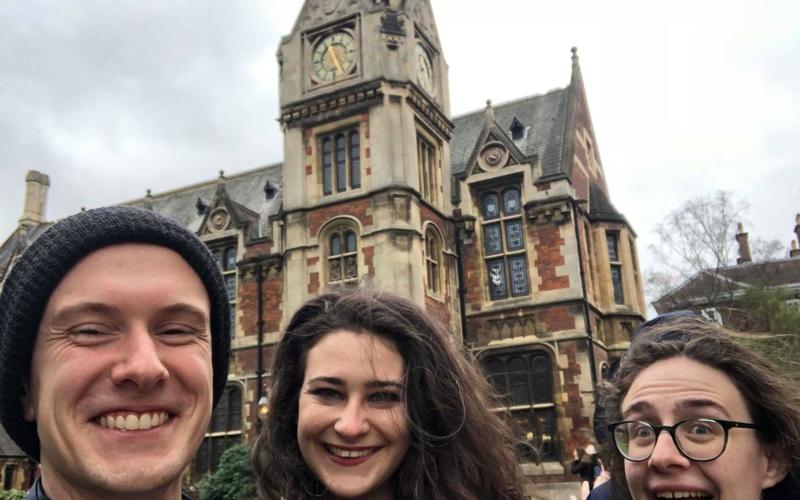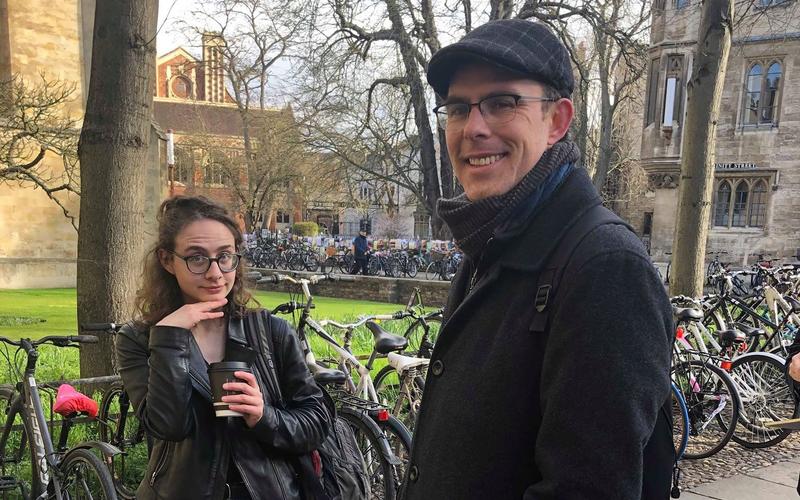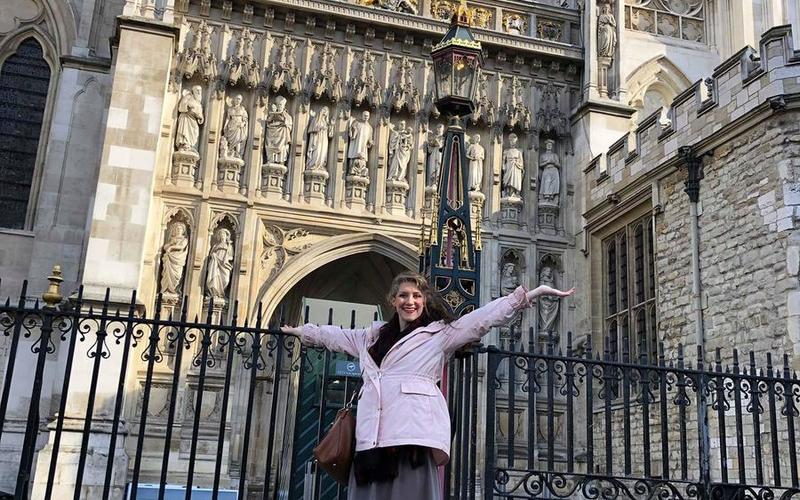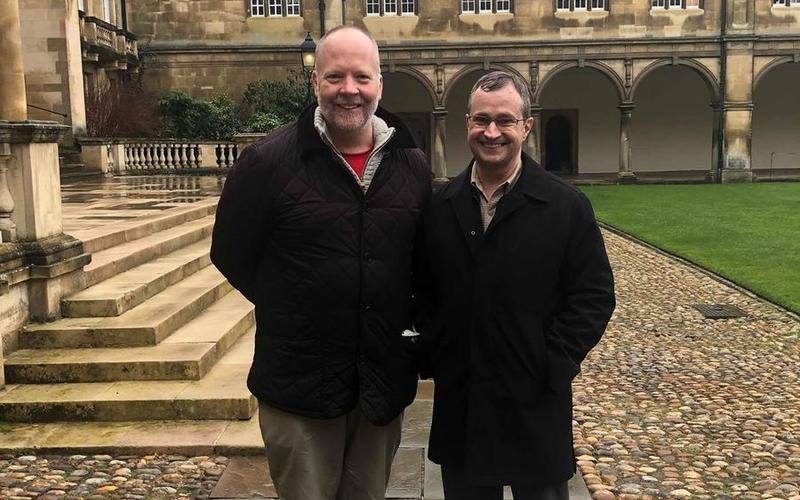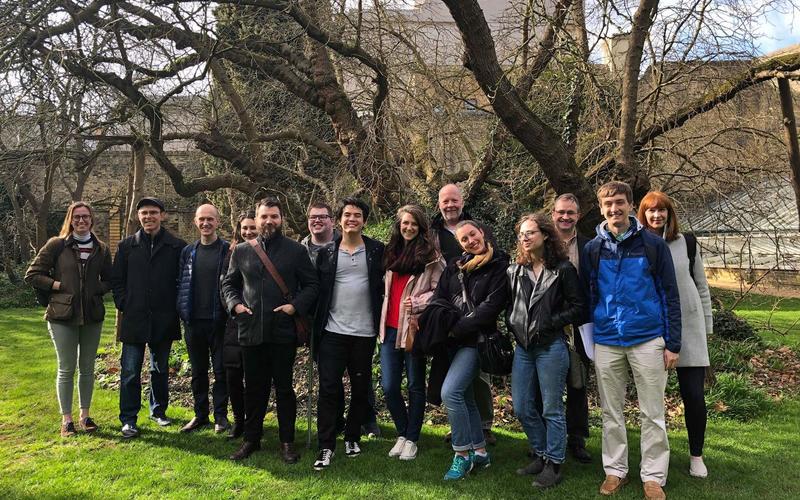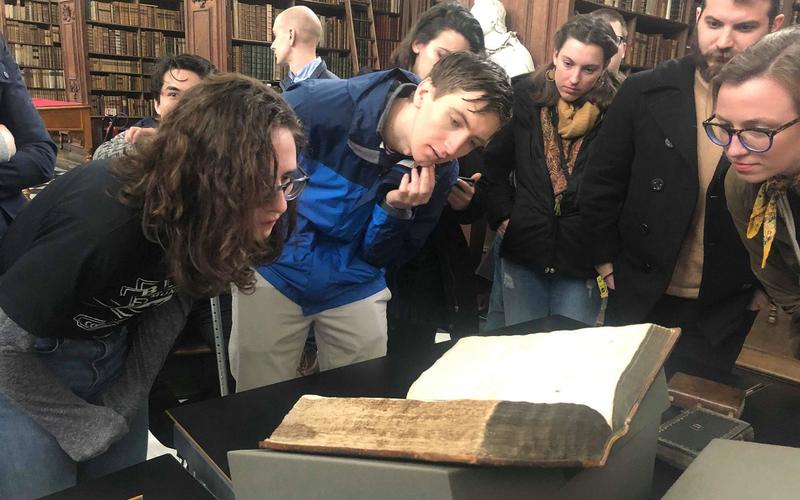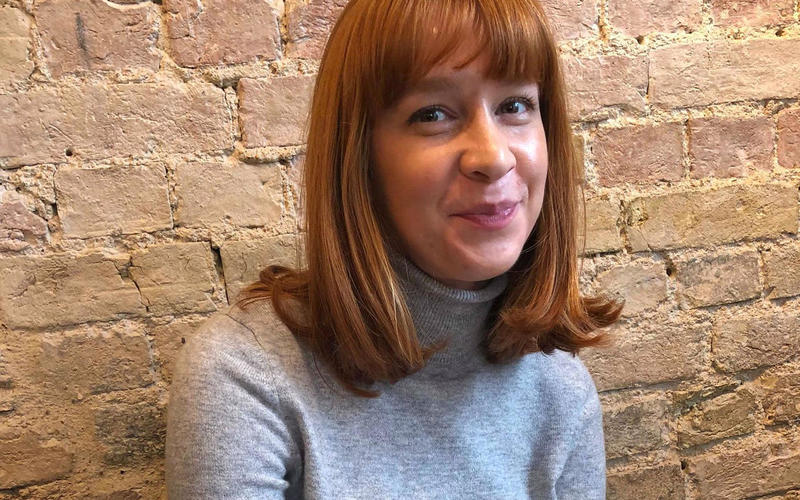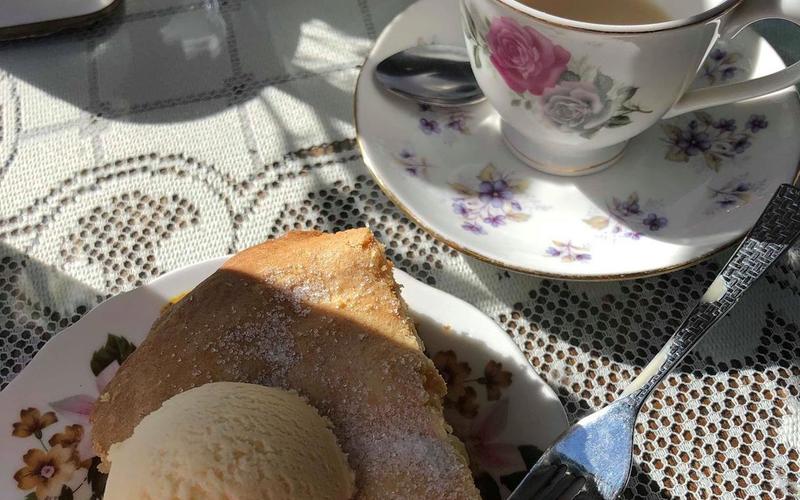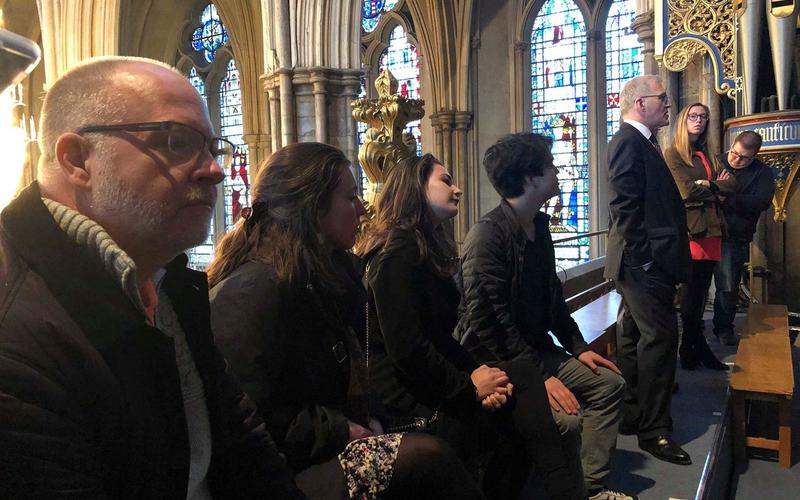In March 2019, students in the seminar Religion and Literature in Early Modern Britain traveled to the United Kingdom. Professors Bruce Gordon (Titus Street Professor of Ecclesiastical History) and John Rogers (professor of English) led the ISM-sponsored travel seminar. Four students from the seminar offered their reflections on the experience.
A slideshow of “postcards” from the trip is below, at the conclusion of the articles.
When Ideas Find a New Home
Sarah Fox (M.A.R. religion and music ‘19)
Traveling to the United Kingdom for Professors Gordon and Rogers’ course Religion and Literature in Early Modern Britain felt something like a homecoming: Each student in the class already had an individual connection to the places we studied and lived. I think we were each seeking a different part of our individual stories and questions when we landed at London Heathrow that sunny March morning.
Of course, I can’t speak for any other student in the class, but from my understanding, we as scholars were first seeking answers to academic questions. Or, perhaps, more of a sense-based understanding of the environments in which our questions thrive. Some wanted to visit Westminster Abbey, perhaps to hear the great organ or see the graves of literary giants we admire so much. Others were fascinated by Foxe’s Book of Martyrs at the Wren Library and still others awaited with anticipation the visit to John Knox’s house in Edinburgh, Scotland.
In my estimation, the best aspect of the trip was continually seeing great minds come together to produce beautiful and innovative ideas, ideas that seemed groundbreaking and exciting in their own right. For me personally, the highlight of the trip was an afternoon spent in the office—or rather something more like a magical think tank—of Dr. Sophie Read, lecturer in English at Christ College, Cambridge.
Our class, something like an awkward and loving family at this point, ambled up narrow steps to reach Dr. Read’s office. We were greeted by the warmth of flower-decorated furniture and shining, shining sunlight. The large, open windows overlooking the gardens of Christ College let in the smells of freshly cut grass and roses blooming in the tenderly cared-for ground.
Dr. Read invited us into a conversation, into a kind of intellectual home. And there we sat talking about poetry and smells. Yes, smells. From the time of the Renaissance through the seventeenth century, the sense of smell played an important role in religious devotion, particularly religious devotional poetry. Think of the key role that incense has played in many parts of the Western Church for over a thousand years. Dr. Read presented us with ideas about embodied smell in religious devotional poetry.
Dr. Read lit a bit of frankincense in an incense burner on a table in the middle of the room. As we discussed devotional poetry and the power of smell, the scent of the frankincense wafted throughout the room, catching us at random in our thoughts. We discussed the ways in which George Herbert referred to the smell of “amber-greese” (ambergris), a scent produced by collecting the digestive juices of sperm whales, to signal a special relationship with God. Dr. Read passed around an Italian ambergris-based perfume so we could experience the meaning of the poem in a new way. Some of us inhaled deeply, enjoying the strong spiciness of the perfume. Others of us turned away in disgust.
This is true learning! I thought. The poem took on a newly complex meaning. And so did our experience: We grew into the history of the poem, understanding the new smell that accompanied it. We grew in relationship with each other, understanding how our own various reactions to a single scent embodied the complexity of the liturgical and theological questions we pursue in the history and literature of times past.
As I said, our class exploration of the United Kingdom was a bit like coming home—a home in which we found new meanings and new versions of the past we study and the selves we seek to understand. It was true learning, in the complete sense of the word: learning that matters, learning that changes, and learning that brings those who pursue it closer together.
Other student reflections:
Madeleine Muzdakis
Our trip to the UK really opened doors to once-in-a-lifetime experiences. Holding books from the Wren Library, hearing Sarah play the organ at Westminster Abbey, sniffing frankincense with Sophie Read – these were incredible moments. But beyond that, the chance to get to know my professors and classmates on a trek across three cities was joyful and encouraging for all of us as we moved into the end of the semester. It was an unforgettable experience, and for me, who had found the first year of grad school rather isolating, it was very heart-warming.
Eve Houghton (Ph.D. English ‘24)
This trip was a fantastic opportunity to work with renowned British historians and literary scholars of the early modern period like Lorna Huston, Sophie Read, Roger Mason, and Jane Dawson, as well as a chance to engage with the lived, material reality of the spaces and places we had studied. I also have so many special memories from the trip outside the classroom: a candle-lit Richard II on the first night, evensong and a behind-the-scenes visit at Westminster Abbey (one of our students played the organ!), a private tour of Trinity College’s Wren Library featuring Miles Coverdale’s severed and preserved finger, dashing uphill for a glimpse of Ely Cathedral at seven in the morning before we got on the train to Edinburgh, dressing up in the garb of a sixteenth-century preacher at the John Knox House, visiting an underground bar hidden behind a bookcase…and many more! I am so grateful to the ISM for making possible this unique and wonderful experience.
Henry Ishitani (Ph.D. history ‘25)
Amidst all of the cathedrals and castles and classes, the museums and London theaters, the finest revelations of this travel seminar came in those odd moments of in-betweens: on the plane, over that first British breakfast, outside a pub, or hiding from the rain with our coffees and pasties. But that, perhaps, is natural, especially in a land of wonderful little odds and ends such as Britain. For it was in those moments that the impressions could settle a little and come pouring out to the beautiful people who accompanied us. And truly they were some of the best– Professors Gordon and Rogers attract students who are passionate in their own knowledge of Shakespeare and Herbert and music and the Bible and Calvin, yet so very willing also to learn from and listen to one another. Though less than a week in length, I felt more than one friendship begin to blossom into life this trip, sluiced by good company and those glimpses shared, the stuff that makes one treasure one’s fellow travelers in life.
Looking back now, several months afterwards, my own scrawlings at this holy space and that painting and that lecture seem ever more alien to my conscious self, but I rest easy in how the thought and feeling have come to rest within my own emotions and between myself and these other persons. Memories of the blare of Scottish fiddles at the pub, the flow of evensong, and my friend’s sonorous playing on Westminster’s organ will persist, as music tends to do, but most of all, I trust to the effect that my friends and I have had on each other. Through its setting and its people, this trip helped me to come outside of myself, to see and be seen by other people, as the best of travel allows.
